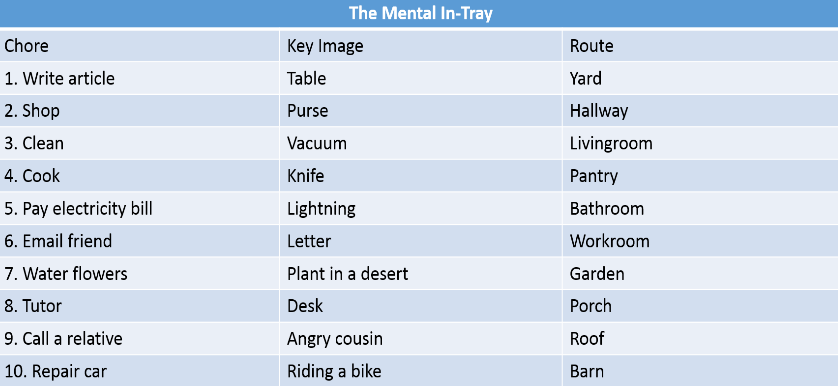Memory Boosting – The Key to Successful Job Interviews

Today’s technology has led some to believe that we no longer need memorization skills, that improving one’s memory has become secondary in importance and usefulness. Why bother, when instead of burdening your mind with all kinds of information, you can simply use the computer to search for virtually any topic out there, or the calculator when dealing with numbers. All these new inventions lure you into believing that you have the universe at your fingertips, at the push of a button.
However, what people forget is that by dismissing their memorization skills and by putting them ‘on hold’ for when they are needed, they destroy their chances of improving their memory and consequently their lives, in the long run.
That is not to say that there aren’t those who realize that by keeping their memorization skills alive, their life can become more organized, efficient and successful, both on a personal and on a professional level. Unfortunately, just like Mark Twain is reported to have said “everyone talks about the weather, but no one does anything about it”, people tend to complain about their bad memory without actually doing something about it.
Trying to boost your memorization skills might seem a daunting feat when faced with all the studies, techniques and methods that experts have amassed until now. However, wouldn’t you be interested in knowing how boosting your memory could help you get a job with flying colors? Wouldn’t you want to learn those memorization techniques that can help you become the ideal interviewee?

Today’s employment market is difficult to please and interviews are more important than ever; that is exactly why a trained memory can be the key to your professional success. Think of how impressed an interviewer would be when he sees that the applicant has done extensive research on the firm beforehand.
What’s more, by recalling details and important information at will, the interviewee will come across as intelligent and dedicated. However, the question still remains: “How can one achieve this?”
In his book, How to Develop a Perfect Memory, Dominic O’Brien, a British mnemonist, author of memory-related books and 8th time World Memory Champion, suggests that applicants should use ‘the mental in-tray’ before an interview. He explains that this mental in-tray is a simple journey with ten stages, stressing upon the importance of choosing a place that holds happy memories.
He then describes the main steps of this technique:
“Once you have established and memorized the ten stages, run through all the chores, tasks, or general worries that are currently troubling you. Then create a key image for each one and place them at separate stages.”
By following O’Brien’s indications, I have created my own mental in-tray so that you can see how easy it is to memorize things. The place I have chosen for my journey is my grandparent’s house where I spent most of my summers as a child. This is my mental in-tray:

The funny and strange image of an angry cousin on the roof, or that of riding a bike in the barn, can easily remind me of the things that are on my to-do list.
This same principle can be applied when preparing for an interview. As Dominic O’Brien explains, you just have to “keep the journey short and simple (no more than ten stages), and use instant associations to create your key images”.
The only difference here, he states, is that you should place your questions in order of priority, so that you can “walk along your short journey letting the key images trigger off the questions”. This way, you can successfully order your thoughts, so that you can ask all the questions you want at the right moment, without forgetting any one of them.
“There is no limit to the information that can be stored using journeys: facts and figures about the company, including balance sheets and its history; information relating to customers, branches, key employees; data about the general sector or industry; related share prices.”
O’Brien also gives the potential interviewee the following suggestions:
- start your journey at the firm itself;
- keep the data as visual as possible;
- transform a very technical information by applying “The Dominic System”, the mnemonic system used to convert statistics into people and actions;
- use word associations to remember important members of staff;
- break down your CV into its constituent parts, and translate them into key images.
All the above suggestions are meant not only as advice, but also as a means of making the reader understand that no matter how well prepared he is, or how much research he has done, his chances of getting the job are minimal if he doesn’t perform well on the interview.
Mental composure and good memorization skills are essential. That is why honing your memorization skills and thus, improving your memory, will help you maintain your train of thought in today’s difficult interview environments, bringing out the best in you when it counts the most.
Image sources:

Tags: Interview, Job Satisfaction, Personal performance, Training strategy





